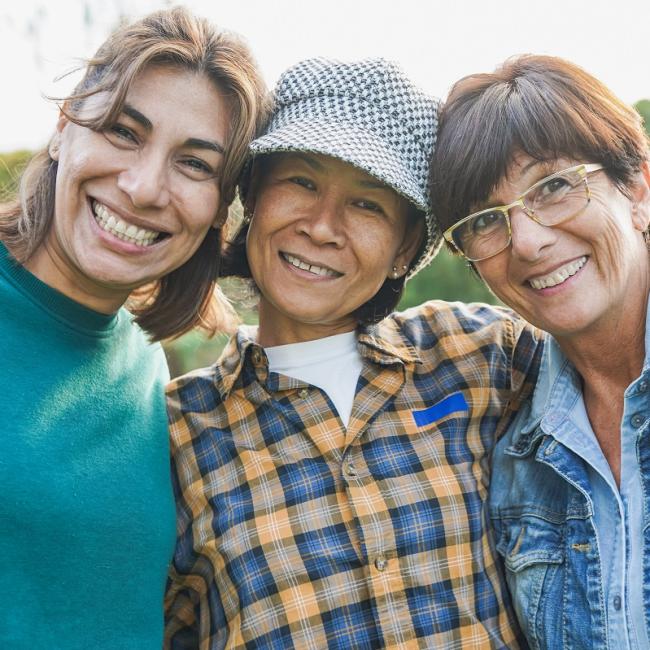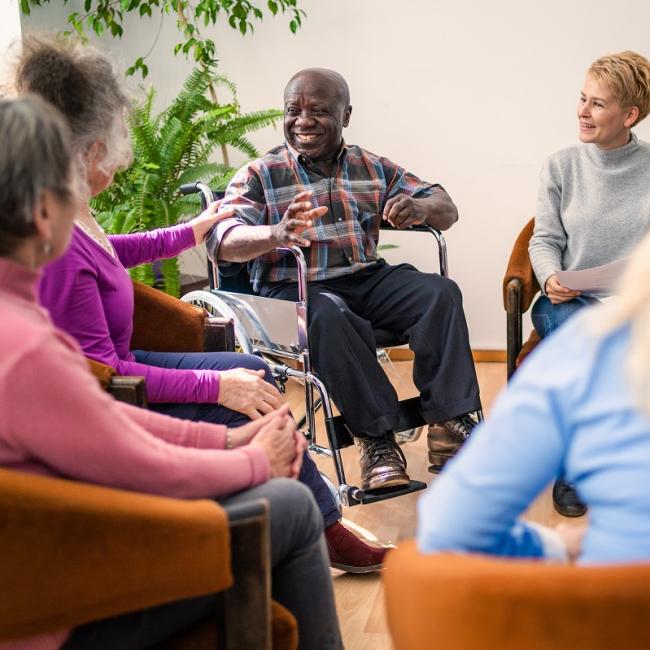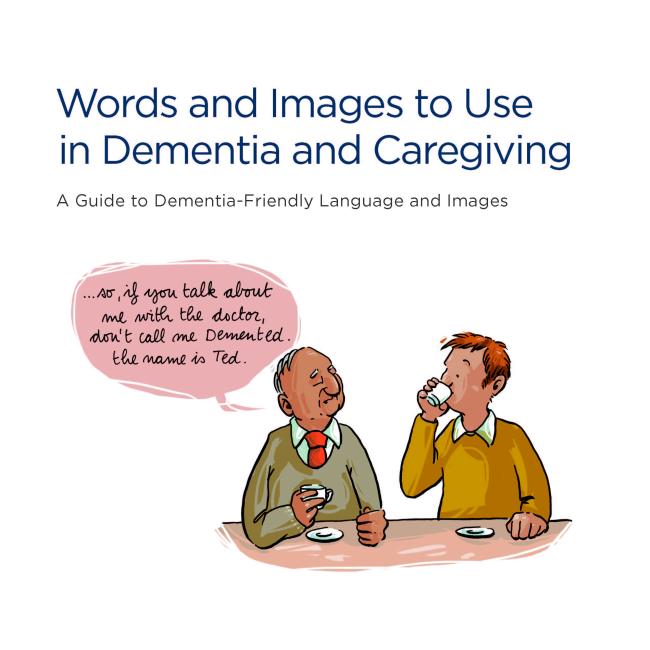Listening to the Voice of People with Lived Experience of Dementia
Patient and Public Voice Interview with Carol Lei, co-chair of the GBHI Dementia Community Research Advisory Panel.
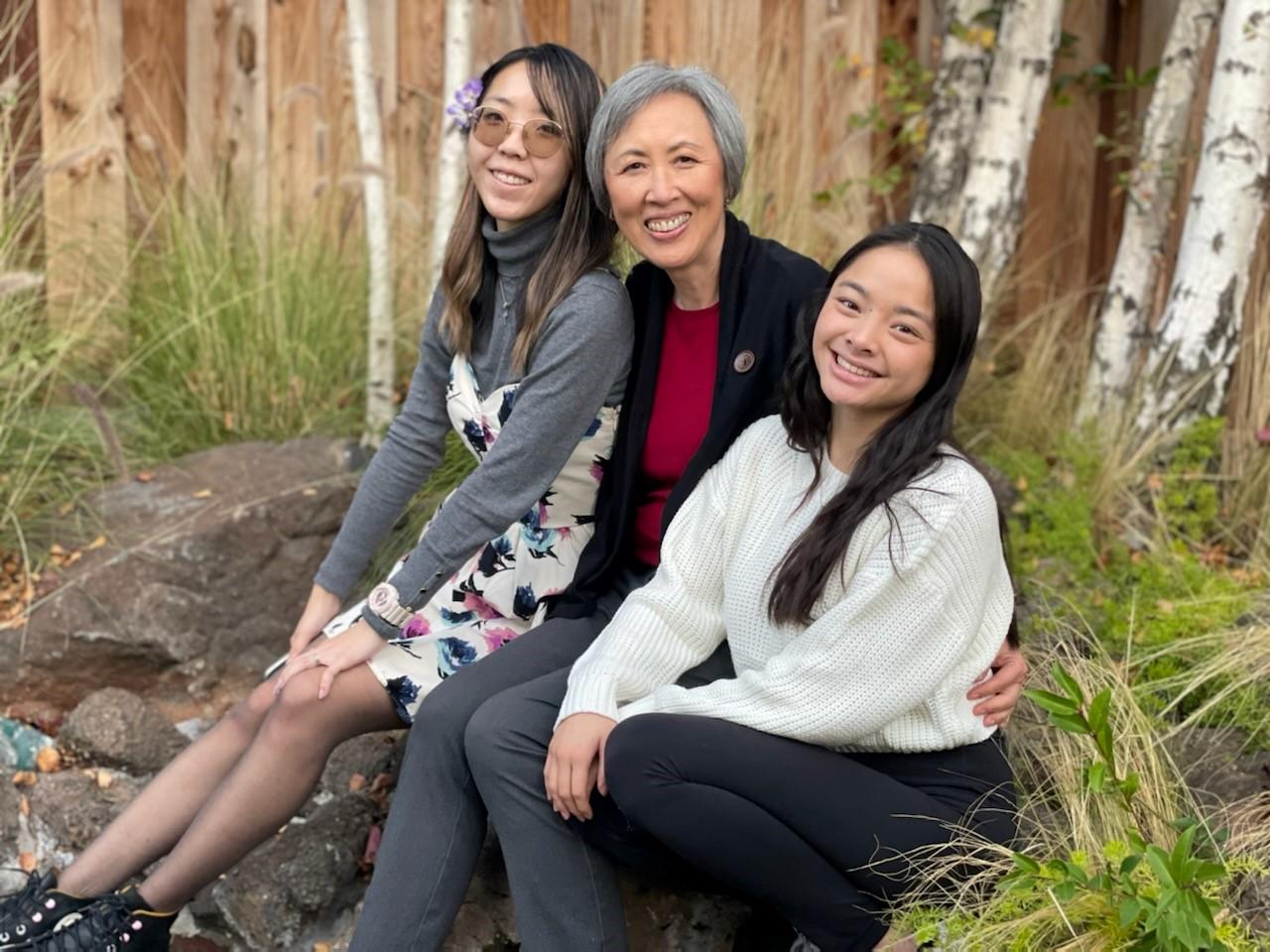
Above: Carol Lei (center) with her daughters Nicole (left) and Danielle (right) in 2021.
Carol Lei was a caregiver to her husband who had early onset Alzheimer’s disease while raising their two young daughters. She is part of the UCSF Memory and Aging Center’s Family Advisory Council, and GBHI’s Dementia Community Research Advisory Panel (DC-RAP). She is currently a co-chair of DC-RAP which was established as part of GBHI’s Patient and Public Voice (PPV) program which strives to ensure that the voice of people with lived experience of dementia is central to the work and activities of GBHI. Below she shares her inspiration for joining the panel and why its work is so important.
I see my presence as a way that will help people think a little differently, act differently, that would benefit humankind.
Why did you join the Dementia Community Research Advisory Panel?
When people think about dementia, people focus much on the patient without considering the impact of dementia on caregivers, and their impact ultimately on the patient. I see my presence as a way that will help people think a little differently, act differently, that would benefit humankind.
I think being part of the project is incredible and exciting. It is necessary and long overdue to have people living with dementia, their families, caregivers and community members involved in dementia research and decision making, because it takes a community to really live together and help each other out.
What stands out to you about the panel?
I like the fact the project is a bigger picture than a local or national endeavor and can possibly make a significant impact globally. The number of people affected by dementia and the number of caregivers is growing. It feels amazing to think that my lived experiences in my smaller circle can lead to a larger impact on global wellbeing. And it’s also nice that not only caregivers are involved in the project, but also people living with dementia.
And I appreciate the presence of a distress protocol for the group, acknowledging that bringing up memories from the past can be very emotional and difficult for many. This was one example of walking the talk, that we care about each other, acknowledging each as individuals, and where we might be in our journey.
What personal impact has the panel had on you?
My husband passed away eight years ago, our two daughters are now away at university, and I retired from my job managing a program for the City of San Francisco. Contribution to DC-RAP is giving me a focus, a way to keep my brain involved in something meaningful and feeling like I can still contribute to society.
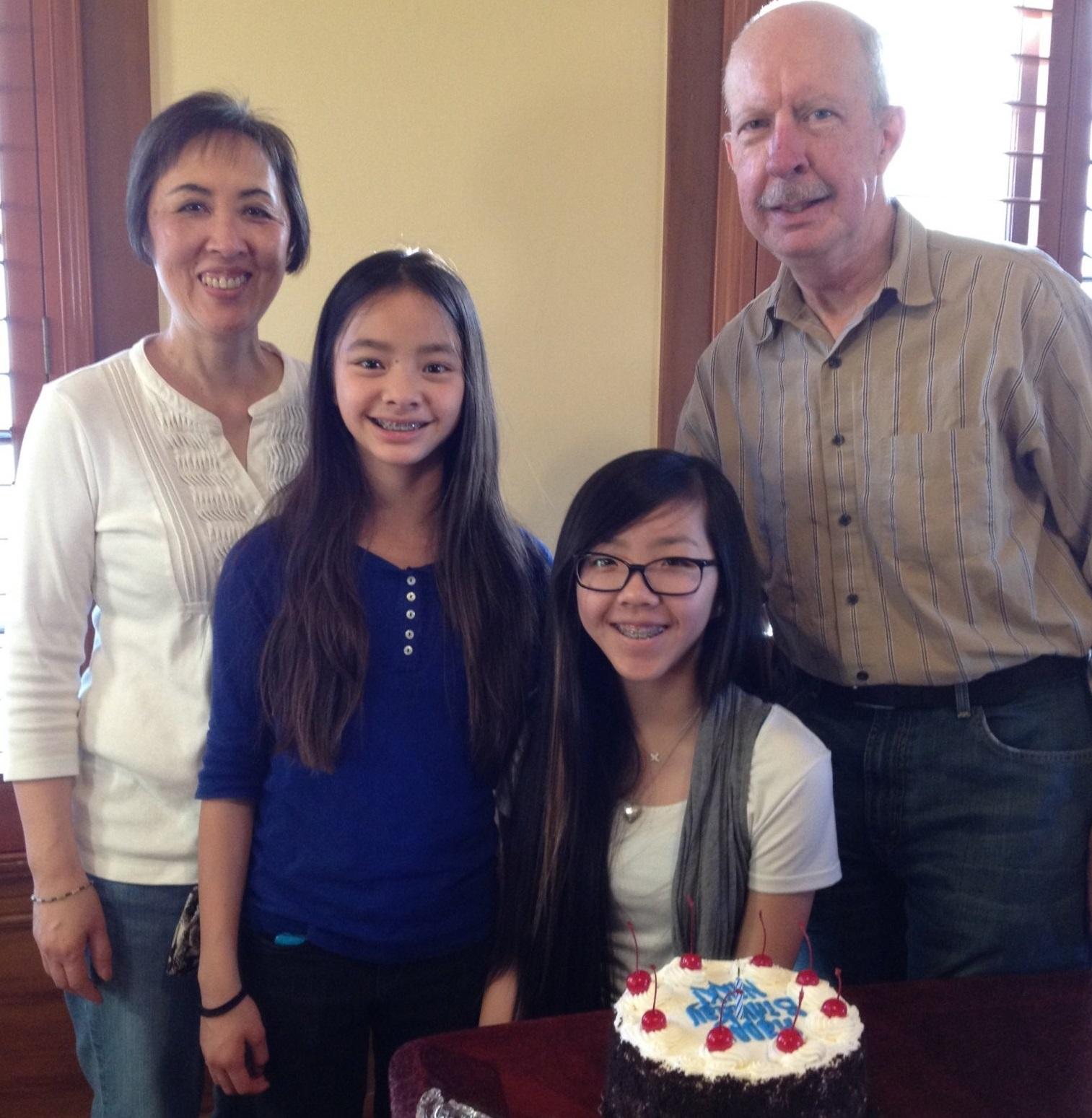
Above: Carol (left) celebrates a family birthday with daughters Danielle and Nicole and husband Ray Grefe in 2014.
Do you have any concerns about participating in the panel?
It feels great thinking my input could be of value, but I sometimes wonder whether my experiences of being a caregiver so many years ago are still relevant. But I want to make sure the voice of caregivers with young children are heard. And it’s also a balancing act of staying naïve about dementia to retain my experiences as a typical caregiver versus learning too much where my voice has changed.
What suggestions do you have for the panel’s future?
Now that the panel has been established, I feel we need to move quickly from the forming stage into storming, norming and performing stages in order to achieve our goals.
I think you need to build balanced groups, emphasizing diverse representation while being careful about the number of members in a PPV panel. I worry about spreading ourselves too thin in an attempt to cover too much. We need to focus on what we can do now and with a sense of urgency.
And of course, I’d like to encourage Atlantic Fellows to make use of the panel as much as possible. It is important for them to gain exposure and insights to lived experiences from patients and caregivers, where their work can benefit the world.
Learn More
Authors
GBHI Members Mentioned
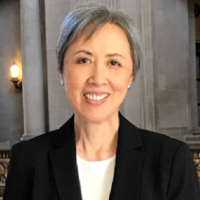
Carol Lei
Co-chair of the GBHI Dementia Community Research Advisory Panel.
